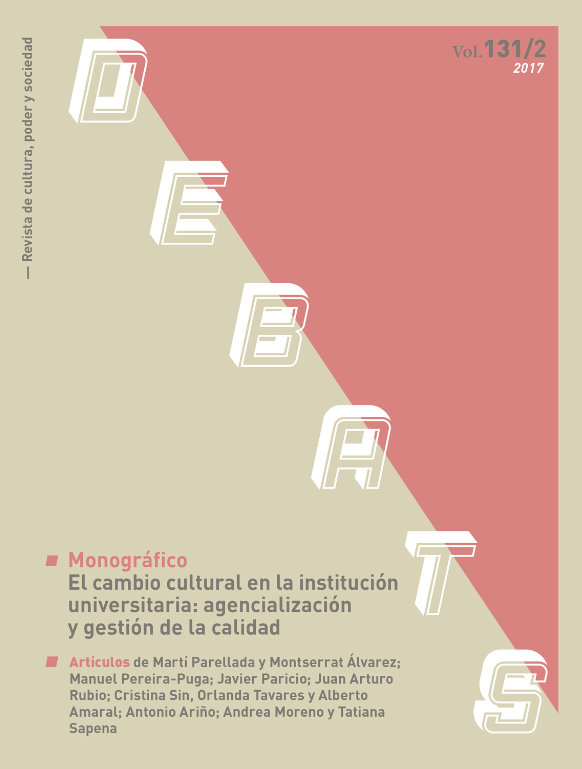Human resources in the global higher education market: the presence of foreign professors in Spanish universities
Abstract
Despite the existence of a global higher education market in which universities compete to attract talented academics from all over the world, most higher education institutions hire very few foreign researchers. Indeed, in Spain, only 1 in 40 academics are from abroad. This article focuses the Spanish case in order to deepen our understanding of the factors affecting the internationalisation of academic staff in the higher education sector. The analysis is based on data from the European Register of Tertiary Education Institutions and Spanish Higher Education Statistics data, collected by Spain’s National Statistical Office. The main results of this exploratory analysis show that there are differences between Spanish regions in terms of the proportion of foreign staff they hire. Moreover, at the institutional level, the most internationalised universities are relatively
new institutions, and most of them are located in Catalonia. The political and economic framework in Spain discourages the hiring of international academics. However, in this context, two important insights should be highlighted: On the one hand, the differences between Catalonia and the rest of the Spanish autonomous communities show that sub-national policies may have a strong impact on internationalisation processes in decentralised countries like Spain; on the other hand, divergence between universities shows the importance of the strategic behaviour of actors facing environmental pressures.
Downloads
Downloads
Published
How to Cite
Issue
Section
License
Without prejudice to the provisions of article 52 of Spanish Law 22/1987 of November 11 on Intellectual Property, BOE (official state bulletin) of November 17, 1987, and pursuant to said legislation, the author(s) surrender(s) free of charge its rights of edition, publication, distribution and sale of the article, for its publication in Debats. Journal on Culture, Power and Society.
Debats. Journal on Culture, Power and Society is published under the Creative Commons license system in accordance with the «Recognition - Non-Commercial (by-nc) modality: The generation of derivative works is permitted provided that commercial use is not made. Nor can the original work be used for commercial purposes».
Thus, when the author submits his/her contribution, he/she explicitly accepts this assignment of publishing and publishing rights. Authors also authorize Debats. Journal on Culture, Power and Society to include their work in an issue of the journal to be distributed and sold.











